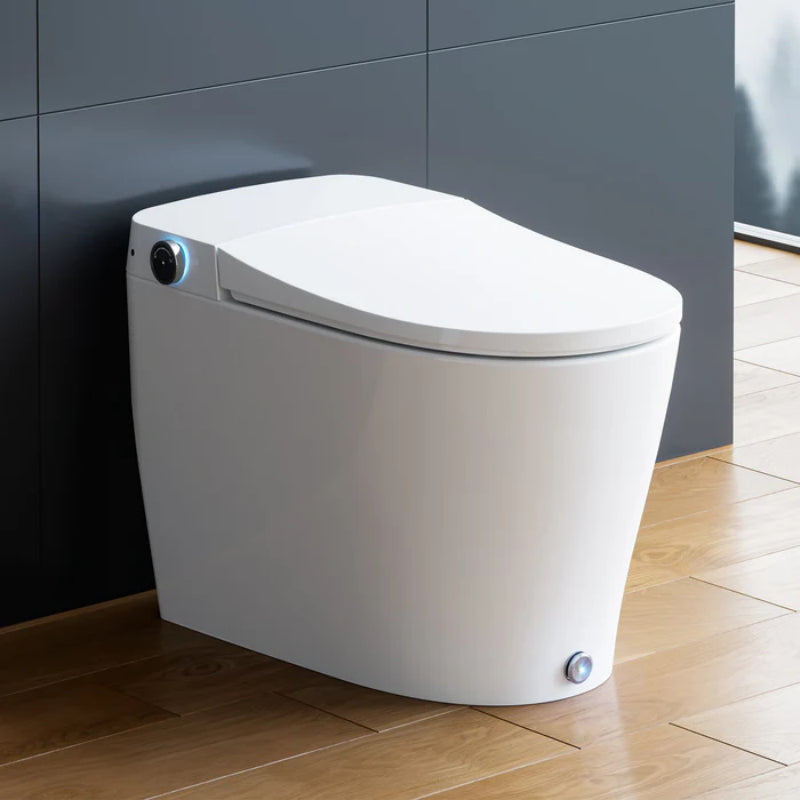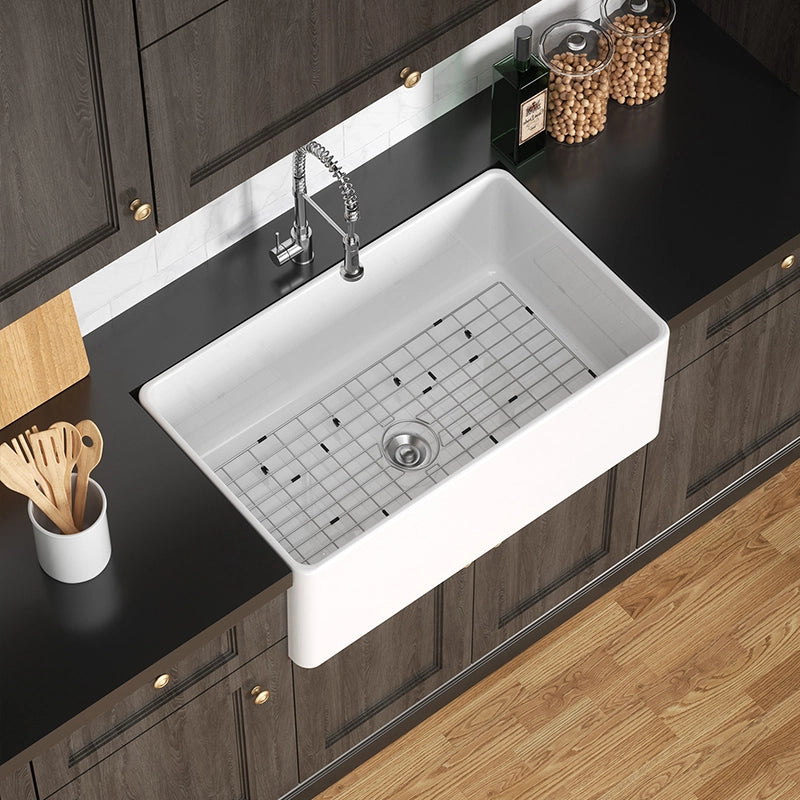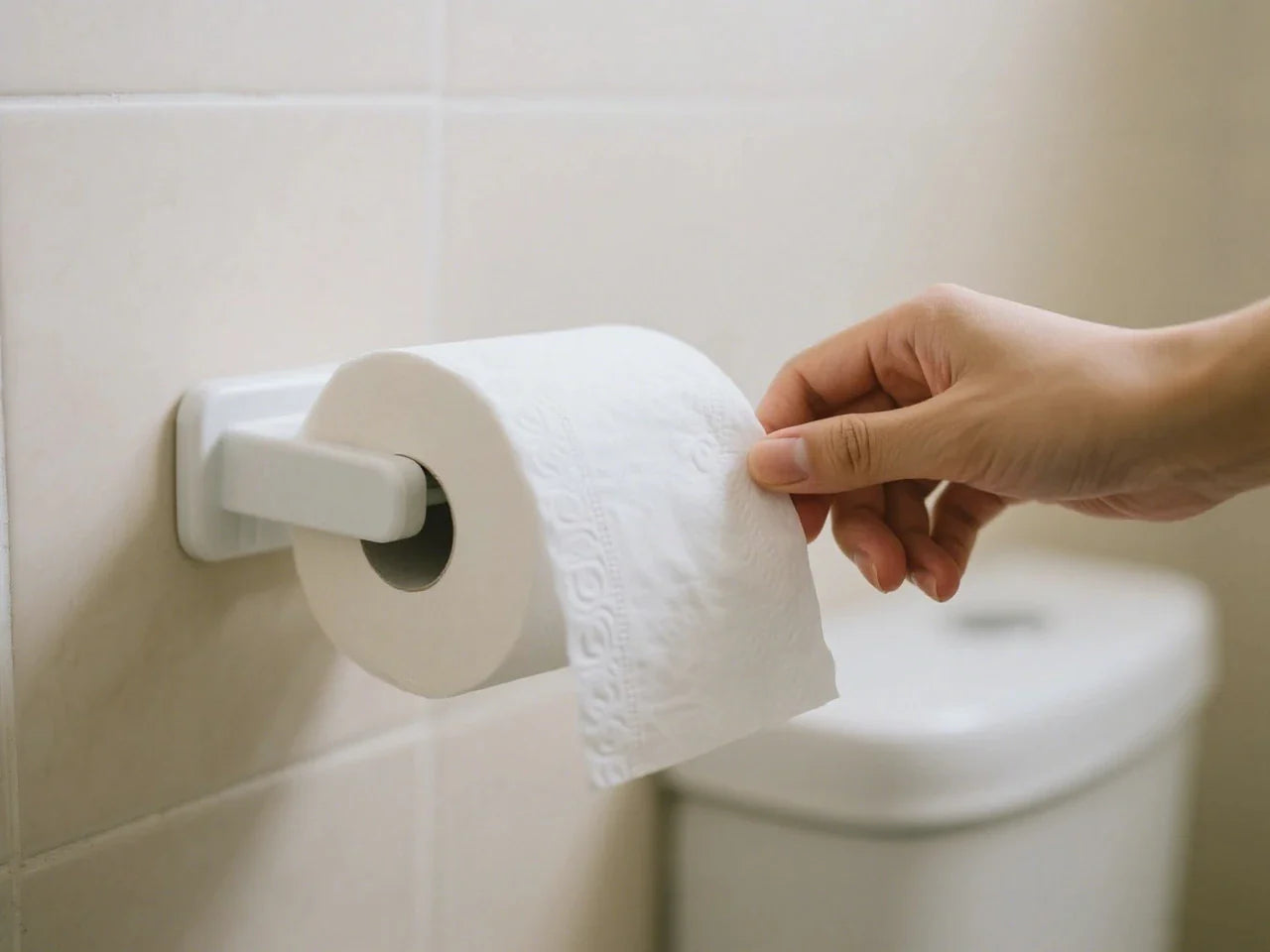It's a question you might type into your search bar in private: how many times should I poop? You are not alone in wondering. Many of us grew up hearing that a daily bowel movement is the gold standard of health. But science and population data show that healthy pooping habits are much more flexible. This guide will explore what's normal, what factors influence your bathroom routine, and when a change might signal it's time to speak with a doctor.
What’s Considered a Normal Pooping Frequency?
Is it good to poop everyday? How many times a day should you poop? Let’s get straight to the point. The truth is, bowel habits vary. But how often should you defecate to stay healthy? According to the National Institute of Diabetes and Digestive and Kidney Diseases (NIDDK), normal bowel movement frequency can range from three times a day to three times a week, aligning with current medical understanding of healthy digestive function. The most important factor isn’t hitting a specific number but maintaining a pattern that is consistent and comfortable for you. If your bowel habits are predictable and you feel well, you are likely within your normal range.
Think of it this way: what is normal is a wide spectrum, not a single point. A large 2023 study of adults in the United States found a fascinating distribution:
- 53% reported pooping about once a day (7 times a week).
- 30% reported going more often, between 8 and 21 times a week.
- 12% said they had a bowel movement 3 to 6 times a week.
- Only 1.2% pooped more than 21 times a week.
This data clearly shows that pooping every day is common, but so is going more or less often. The key takeaway is consistency. A sudden and lasting change from your normal is more significant than how your frequency compares to someone else's.
Quick Quiz: What’s Normal for My Lifestyle?
Before diving into the quiz, think about your own bowel movements. Do you know how much poop is normal for your body, or how many times should you poop a day based on your habits? Answer these simple questions to better understand your personal rhythm.
- How much fiber do you eat? (e.g., lots of fruits, veggies, whole grains vs. mostly processed foods)
- How much water do you drink daily? (e.g., several glasses vs. just a few sips)
- How active are you? (e.g., desk job with little exercise vs. active job or regular workouts)
- What is your current stress level? (e.g., low and managed vs. high and constant)
Your answers directly affect how often you poop, creating a unique "normal" for your body and circumstances.
What Affects How Often You Poop?
Many factors influence your digestive system and poop frequency. Your daily habits, age, and even your mood can change how often you need to go to the toilet. Understanding these influences can help you identify why your routine might have shifted.
Diet and Hydration
Based on the Cleveland Clinic, adequate dietary fiber intake and proper hydration are essential factors that promote healthy bowel movements and prevent constipation. Fiber is key: it adds bulk to stool and helps it pass more easily. If you're not eating enough fiber, constipation can result. However, consuming too much fiber too quickly can lead to gas and bloating. Hydration is equally important — water softens stool, making it easier to move through your digestive tract.
Who’s most affected? Everyone is influenced by diet, but people on low-fiber diets tend to poop less frequently. On the other hand, vegetarians and vegans, who usually consume more plant-based fiber, may have more frequent bowell movements.

Physical Activity Level
Movement helps digestion. Exercise stimulates the muscles in your intestines, helping stool move along. On the flip side, a sedentary lifestyle can slow down digestion and delay pooping.
Who’s most affected? Office workers, seniors, or people with limited mobility may experience less frequent bowel movements. Athletes or active individuals often have more regular or even more frequent pooping patterns.
Age and Life Stage
How often you poop can change with age. Infants and young children may poop several times a day. As we get older, our metabolism slows, and so does gut motility, which can lead to less frequent pooping. Hormonal changes during pregnancy can also affect bowel regularity, often leading to constipation.
Who’s most affected? Infants, toddlers, pregnant women, and seniors all experience changes in bowel habits tied to their life stage.
Stress and Daily Routine
Stress doesn't just affect your mind — it also affects your gut. For some people, stress or anxiety can cause diarrhea; for others, it may lead to constipation. A sudden change in daily routine, such as traveling, can also disrupt your usual bathroom schedule.
Who’s most affected? Anyone under stress or experiencing a major routine shift. Stress-related digestive changes are common in people with conditions like irritable bowel syndrome (IBS).
Medications and Health Conditions
Certain medications, including opioids, antidepressants, and iron supplements, are known to cause constipation. Additionally, medical conditions like IBS, Crohn's disease, and thyroid disorders can directly affect how often you poop.
Who’s most affected? People taking these medications or managing chronic illnesses often experience changes in bowel habits as part of their overall health profile.
| Factor | How It Affects Your Pooping Frequency | Who It Might Affect Most |
|---|---|---|
| Diet | Fiber adds bulk to your stool, making it easier to pass. Not enough fiber can lead to constipation. Too much at once can cause gas and bloating. Hydration is crucial; water softens stool, helping it move smoothly through your digestive tract. | Everyone. People on low-fiber diets may poop less often. Vegans and vegetarians often have higher fiber intake and may have more frequent bowel movements. |
| Physical Activity | Exercise stimulates muscle contractions in your intestines, helping to move stool along. A sedentary lifestyle can slow down your digestion. | Office workers, older adults, or anyone with limited mobility. Athletes may experience more regular or sometimes more frequent movements. |
| Age & Life Stage | Infants and children often poop several times a day. As we age, our metabolism and gut motility can slow, leading to less often pooping. Hormonal shifts during pregnancy can cause constipation. | Infants, toddlers, pregnant women, and seniors. |
| Stress & Routine | High stress can disrupt your gut health. For some, it causes diarrhea; for others, constipation. Travel and changes in routine can also throw your system off balance. | Anyone experiencing stress, anxiety, or a change in their daily schedule. This is a common trigger for irritable bowel syndrome (IBS). |
| Medications & Health Conditions | Pain relievers (opioids), antidepressants, and iron supplements are known to cause constipation. Certain conditions like IBS, Crohn's disease, or thyroid issues directly impact bowel habits. | People taking specific medications or managing chronic health conditions. |
Quick Tip: Even small changes, like drinking two extra glasses of water or taking a 20-minute walk, can shift your bowel frequency. If you notice a change, think about what's different in your daily routine.
How Many Times Should I Poop? Red Flags for Bowel Changes
You may ask: "how many times should I poop?" , while your personal "normal" can be broad, certain changes in your pooping habits warrant attention. It's less about the exact number of times a day and more about a sudden, unexplained, and persistent shift from your baseline, especially when accompanied by other symptoms.
When to See a Doctor: A Simple Guide
Follow this path to decide if you should seek medical advice.
Have your bowel movements changed from your usual pattern for more than two weeks?
- No: Continue monitoring. Your body might just be adjusting to a small lifestyle change.
- Yes: Proceed to the next question.
Are you experiencing any of the following "red flag" symptoms?
- Severe, persistent abdominal pain or cramping.
- Blood in your stool (can look red, maroon, or black and tarry).
- Unexplained weight loss.
- Constant feeling that you need to poop but can't.
- Fever, nausea, or vomiting along with the change.
- Chronic Diarrhea: Loose, watery stools 3 or more times a day for over 14 days.
- Chronic Constipation: Having fewer than three times a week bowel movements that are hard, dry, and difficult to pass.
If you answered YES to any of these, it is time to see a doctor.

Checklist: What to Monitor Before Your GI Visit
Being prepared for your appointment helps your doctor understand your situation. Before you go, try to track:
- Frequency: How many times are you going per day or per week? How has this changed?
- Consistency: What does your stool look like? (e.g., hard lumps, soft blobs, liquid). The consistency of your poop is often more important than frequency.
- Color: Note the color of your poop. While often related to diet, colors like black, pale white, or red can be a sign of a problem.
- Symptoms: Do you have pain, bloating, gas, or a feeling of incomplete evacuation?
- Triggers: Did the change start after a new medication, a stressful event, or a diet change?
Age-Specific Warning Signs
| Demographic | Key Warning Signs to Watch For |
| Infants & Children | - Hard, pebble-like stools. - Straining or crying during a bowel movement. - Diarrhea lasting more than 24 hours. |
| Adults | - Any of the "red flag" symptoms listed above. - A new and persistent change in bowel habits after age 50. |
| Seniors | - Sudden onset of constipation or diarrhea without a clear cause. - Unexplained weight loss. - Fecal incontinence (leakage). |
Optimizing Your Gut Health: How to Support Healthy Bowel Movements
Want to improve your regularity and overall gut health? The good news is that you have a lot of control. Simple, consistent lifestyle choices are the best way to support a happy digestive system.
Four Evidence-Based Steps to Regularity:
Eat Fiber-Rich Foods: Fiber is a superhero for your gut. It helps form a healthy poop that’s easy to pass. Aim for 25-38 grams of fiber per day.
- Soluble Fiber: Dissolves in water to form a gel-like material. Found in oats, peas, beans, apples, and carrots.
- Insoluble Fiber: Promotes the movement of material through your digestive system. Found in whole grains, nuts, beans, and vegetables like cauliflower and green beans.
Stay Hydrated: Water is essential. Without enough fluids, stool can become hard and difficult to pass, leading to constipation. Aim to drink plenty of water per day.
Lead an Active Lifestyle: Movement gets your gut moving. Just 30 minutes of moderate activity, like a brisk walk, can stimulate your bowels and promote more regular pooping habits.
Build a Consistent Routine: Your body loves a schedule. Try to go to the bathroom around the same time each day, like after breakfast. Don’t ignore the urge to poop! Holding it in can make constipation worse.

Tips for Common Issues
- For Hard Stools: Increase your water intake and add sources of soluble fiber like oatmeal or psyllium husk.
- For Soft Stools: Ensure you're getting enough insoluble fiber to add bulk. If it's diarrhea, focus on hydration and see a doctor if it persists.
- For Bloating & Gas: Introduce fiber into your diet slowly to allow your gut to adjust.
What to Avoid:
- Overusing Laxatives: Relying on them can make your bowels dependent.
- Ignoring the Urge: When you feel the need to go, go.
- Dehydration: Not drinking enough water is a primary cause of constipation.
- A Diet of Highly Processed Foods: These often lack the fiber needed for a healthy poop.
Tracking Your Bowel Patterns: Poop Journals & Self-Monitoring
Keeping a "poop journal" might sound strange, but it's a powerful tool for understanding your body and providing your doctor with valuable information. If your pooping frequency is a concern, tracking it for a week or two can reveal patterns you didn't notice.
How to Create a Simple Poop Journal
You can use a notebook or a notes app on your phone. For each day, document the following:
- Date & Time: When did you have a bowel movement?
- Frequency: How many times a day did you go?
- Consistency: Describe the stool. Was it hard, soft, formed, or liquid? You can use a simple scale: 1 (hard lumps) to 5 (watery).
- Ease of Passage: Was it easy to pass, or did you have to strain?
- Symptoms: Did you experience any pain, cramping, bloating, or gas?
- Possible Triggers: Note what you ate, your stress level, or any new medications.
What Data Helps Your Doctor the Most?
When you see a doctor, bringing this log can be incredibly helpful. They are most interested in:
- The Change: How is your current pattern different from your old one?
- The Duration: How long has this change been happening?
- Associated Symptoms: Are there any "red flag" symptoms present?
- The Stool Itself: Information about the consistency and color of your poop provides important clues.
This data helps your doctor narrow down potential causes and decide on the next steps, whether it's lifestyle advice, further testing, or treatment.

Expert Insights: Science & Doctor Commentary
Gastroenterologists and nutrition scientists agree that the focus should be on individual patterns rather than a universal number.
Recent studies from 2023-2024 have shed more light on the connection between poop frequency and gut health. Research suggests that people who poop 1-2 times per day tend to have a more diverse and healthier gut microbiome. Both chronic constipation (less frequent) and diarrhea (more frequent) are linked to shifts in gut bacteria. This doesn't mean you must poop everyday naturally, but it highlights the importance of a well-functioning digestive system.
What Science Says About Gut Health & Bowel Frequency
Your gut transit time—the time it takes for food to travel through your digestive tract—is a key health marker. A very slow transit time (constipation) or a very fast one (diarrhea) can impact how your body absorbs nutrients and can be a sign of an imbalance in your gut microbiome. Supporting your bowels with fiber, water, and exercise helps regulate this transit time.
Beyond the Average: Special Life Stages & Considerations
Normal pooping habits can change during different periods of your life or with certain lifestyles.
- Pregnancy: Hormonal changes and the pressure of a growing uterus can slow down digestion, making constipation a common issue.
- Kids & Teens: Children's bowel habits can vary greatly. A diet low in fiber or anxiety about using the toilet at school can often lead to constipation.
- Seniors: As we age, factors like reduced mobility, changes in diet, and increased medication use can make bowel movements less often.
- Athletes, Vegetarians & Vegans: These groups often have high-fiber diets and faster metabolisms, which can make you poop more often. This is typically a sign of an efficient digestive system.
| Medication Class | Potential Effect on Bowel Movements | Common Examples |
| Opioid Pain Relievers | Can significantly slow down the gut, causing constipation. | Codeine, Morphine |
| Antidepressants | Some types (TCAs) can cause constipation; others (SSRIs) can cause diarrhea. | Amitriptyline, Fluoxetine |
| Iron Supplements | Commonly cause dark, hard stools and constipation. | Ferrous Sulfate |
| Antibiotics | Can disrupt gut bacteria, often leading to diarrhea. | Amoxicillin, Ciprofloxacin |
Final Thoughts & Resources
So, how many times should you poop a day? Or how much poop is normal? The healthiest answer is whatever is normal and regular for you, as long as it falls within the broad range of three times per day to three times per week.
In fact, people poop at different rates, and that’s perfectly fine as long as there are no warning signs. Your bowel movement meaning is personal. The most important thing is to pay attention to your body. Watch for lasting changes in your routine, especially if they come with pain, blood, or other warning signs. Your poop offers daily clues about your gut health, diet, and overall well-being
Don't hesitate to see a doctor if you are concerned. A conversation about your bowel habits is a normal and important part of maintaining your health.
Disclaimer: This guide is for educational purposes only. It is not a substitute for professional medical advice, diagnosis, or treatment. Always consult a qualified healthcare provider with any questions you may have regarding a medical condition.
FAQs and Poop Myths Busted
How much should you poop a day? Let's clear up some common questions and misconceptions about bowel movements.
1. Is it unhealthy to poop less than once a day?
Not necessarily. The frequency of bowel movements varies from person to person, and having a bowel movement less than once a day does not necessarily mean poor health. For some people, having a bowel movement every other day, or even two to three times a week, is perfectly normal, especially if the pattern continues, they don't feel discomfort, and the stools are soft and easy to pass. A change in your bowel routine, on the contrary, can be a red flag. For example, if you usually have a bowel movement every day, but suddenly start having a bowel movement only every few days and experience symptoms such as bloating, abdominal discomfort, straining or hard, dry stools. This may indicate constipation or an underlying digestive problem. Factors such as dietary changes (especially reduced fiber or fluid intake), reduced physical activity, travel, stress, or medication use can affect your bowel patterns. In short, a low frequency of bowel movements is not necessarily unhealthy if it is part of your normal rhythm and you feel well. However, any significant or persistent change, especially if it is accompanied by discomfort, is cause for concern and may require medical attention.
2. What is the "3 poop rule"?
The “3 poop rule” is not exactly a hard and fast medical rule, but it is a practical reference that spells out the range of normal bowel movements. It tells us that anywhere from three times a day and three times a week is within the realm of health. This range helps doctors and everyone understand that there is no single “standard answer” to the number of bowel movements. What really matters is regularity and the comforting vigor of a bowel movement. Everyone's bowel habits can vary greatly. Some people are born to have bowel movements several times a day, while others have them only every few days, both of which are considered normal as long as there is no discomfort, no effort, no bloating, and no feeling of not being able to poop. But if your bowel movements beyond this range, such as more than three times a day, or less than three times a week, with stomach pain, hard and dry stools these cases, it is likely to be digestive problems, have to pay attention to. To put it bluntly, the “3 poop rule” is a flexible reference line. It reminds us that having regular bowel movements and feeling comfortable is much more important than sticking to the number of times, and that we need to keep an eye on our bowel habits to see if they keep changing.
3. Can you poop too often? Is it normal to poop 4 times a day?
Yes, frequent bowel movements do not necessarily affect your health, it depends on the situation. For some people, it's perfectly normal to have up to four bowel movements a day, especially if these bowel movements are regular and the stools are soft and well shaped, so they come out smoothly, without any urgency or discomfort. Eating a lot of fiber, eating a regular diet, usually love to move, as well as the bowel movement is relatively strong, these factors can make pooping more often naturally. However, if you have a sudden increase in bowel movements, especially if your stools become loose and watery, or if you are always in a hurry to have a bowel movement, there may be a problem. It may be a sign of acute diarrhea, intolerance to certain foods, stress, an infection in the gastrointestinal tract, or a chronic condition such as irritable bowel syndrome or inflammatory bowel disease. If it is accompanied by stomach cramps, bloating, or feeling tired, it is more likely that something else is going on in your body. Overall, if four bowel movements a day is the norm and you're otherwise healthy, there's nothing inherently wrong with that. But if it's a recent change, or if it's accompanied by digestive discomfort, it's time to pay close attention and talk to your healthcare provider. Regular, good-quality bowel movements are much more important than just the frequency.
4. Do morning poops mean better health?
There is science behind the fact that many people feel that a morning bowel movement indicates good digestion. When a person wakes up, the body has a response called the gastrocolic reflex. This is a natural phenomenon that stimulates the colon to move after eating or even just waking up. This reflex works in tandem with the body's circadian rhythms, often making the morning the busiest time for the intestines. So having a bowel movement in the morning can mean that you are having regular, balanced bowel movements, especially if the stool is soft, well-shaped, and not too laborious to pass. But a morning bowel movement is not a mandatory item for good health. Some people are used to having a bowel movement in the afternoon or at night, and their health is still fine. The key is to be regular, comfortable and free of indigestion, bloating or diarrhea. Just like a person who has a bowel movement every day after dinner may not be any different in terms of health than someone who has a bowel movement every morning. At the end of the day, having a morning bowel movement is quite common and may indicate an active digestive system, but it is not the only measure of health. Having regular bowel habits and feeling comfortable with them is much more important than the exact time of day you have your bowel movements.
5. Do you poop less if you eat less?
Yes, bowel movements are usually smaller when you eat less, which is a normal response to digestive function. Feces are mostly undigested food scraps, fiber, bacteria and water . So when you eat less overall, and especially not enough fiber, your body naturally has less to process and expel. This may result in fewer bowel movements and less volume each time. Just like when fasting, dieting, being sick, or not having an appetite, people usually notice that bowel movements are not as frequent. As long as the stools are still soft, the bowel movements are in line with your usual pattern, and it doesn't hurt when you poop, this decrease doesn't really need to be of much concern. However, if you eat particularly little for a long period of time, especially if you don't drink enough fiber and water as well, you are likely to become constipated. At times like this, making sure you drink enough water and eating foods with lots of fiber, like fruits, vegetables, or whole grains, even in small quantities, can help get the bowels moving regularly. Overall, eating less and having fewer bowel movements is normal and totally expected. But even if you eat less, it's important to maintain a balanced diet and drink plenty of water so that you can keep your digestion in a healthy state.
6. Is it possible to lose 10 pounds after pooping?
Nope, trying to lose 10 pounds with a bowel movement alone is just plain nonsense. While it's true that you'll feel a little lighter and the number on the scale will drop a little bit after a bowel movement, the change is usually slight and only temporary. In general, a bowel movement weighs about 0.25 pounds to 1 pound, depending on how much you eat and how much dietary fiber you consume. Even if you go to the bathroom several times a day, you'll lose a few pounds at most, and not much more. If you have a big fluctuation in weight over a short period of time, such as losing 5 to 10 pounds all at once, it's almost always because your body is storing more or less fluid, and it has nothing to do with fat, or actually getting rid of that much waste. How much water you drink, how much salt you eat, hormonal changes, and what you've just eaten are all factors that can make a significant difference in your weight. But these are all normal and don't indicate that you've actually gained or lost fat. In short, having a bowel movement can make you lose weight temporarily, but it's far from a 10-pound loss. Real, lasting weight change depends on long-term dietary adjustments, increased activity, and improved metabolism, not just one trip to the bathroom.








Leave a comment
This site is protected by hCaptcha and the hCaptcha Privacy Policy and Terms of Service apply.